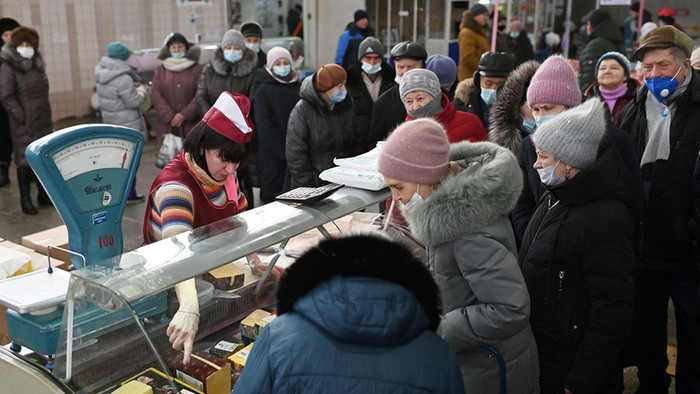The United Nations and multilateral organisations called for urgent and coordinated action to reduce and prevent risks of global food insecurity.
According to the Food and Agriculture Organisation of the United Nations (FAO), the world food prices set a new record in March, partly due to the interruption of grain and cooking oil exports.
Russia and Ukraine are both the world's leading exporters of maize, wheat, barley and sunflower oil, so tensions between the two countries have stalled exports of these commodities, said FAO. The World Trade Organisation (WTO) estimated that grain production in Russia and Ukraine accounts for 6 percent of the world's total output and 16 perent of total global exports. Russia and Ukraine are also important suppliers of fertilisers and animal feed throughout the world.
Bloomberg News cited analyst reports as saying that the global grain trade is at high risk of disruption due to a lack of important supplies from Russia and Ukraine. This is possibly one of the most serious consequences of the current conflict.
Experts predicted that about half the corn Ukraine had been expected to export was unlikely to be delivered as grain shipments from Russia and Ukraine become increasingly difficult due to the conflict. The fact raises concerns about risks to global food security.
On the eve of the spring meeting of the International Monetary Fund (IMF) and the World Bank (WB), a group of leading multilateral organisations including the IMF, WB, WTO and the World Food Program (WFP) issued a joint statement calling for urgent action on April 13. The joint statement stated that the world is shaken by crises and the Russia-Ukraine conflict exacerbated the negative impact of the COVID-19 pandemic, causing supply shortages, pushing up prices of staples and putting millions at risk of going hungry. Poor countries have been most affected because their food imports account for a high proportion of consumption; meanwhile, developing and middle-income countries are also becoming more vulnerable.
WB, IMF, WTO and WFP called for urgent support for vulnerable countries by providing emergency food supplies and financial aid as well as enhancing agricultural production and trade. Multilateral organisations were committed to professional cooperation and coordination of financial resources to quickly promote support policies, especially with urgent financial needs. The organisations also noted the ability to reduce payment pressure and strengthen coordination with other countries to maintain free trade flow, avoid export restrictive measures and monitor loopholes in supply chains.
According to US Treasury Secretary Janet L. Yellen, the world currently has more than 275 million people at risk of serious food insecurity. The urgent goal at the upcoming Spring Meetings of the IMF and the WB is to seek possible solutions to help countries and assist the poor who have to spend most of their income to buy food. In particular, the multilateral development banks will maintain and increase financing for food production, promote trade and improve the food supply system.
Proposing measures to address the global food shortage and reduce pressure from high prices, experts said that the diversification of supply sources is an appropriate choice in the current context. Policymakers and multilateral organisations can work together to search for excess reserves for distribution to vulnerable countries. In addition to budget allocations to increase food production, campaigns to boost food waste reduction, from production to consumption, are also solutions to reduce the impact of "shocks" in food supply and prices.
















